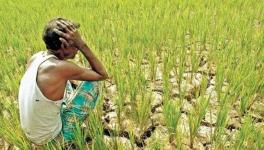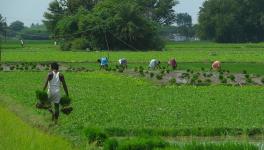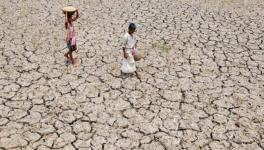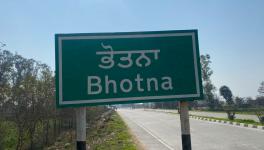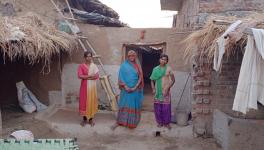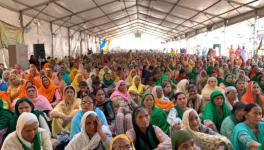#MahaDrought: Farm Failure Spurs ‘Permanent’ Migration from Marathwada
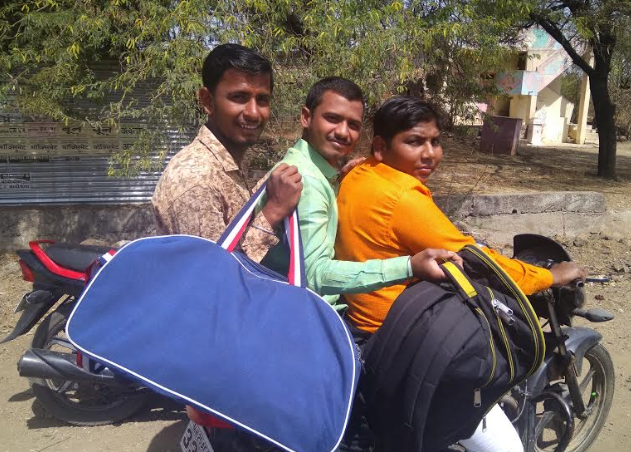
three young boys leaving for Pune from Chinchpur Dhage
The heart-wrenching story of Akshay Tambe’s suicide in mid-February this year shocked Maharashtra, with outpourings on social media. Tambe, 22, committed suicide in his village Chinchpur Dhage of Bhoom tehsil in Osmanabad district after facing severe losses in his farmland. His dream of buying a four-wheeler and using it for taxi service in Pune was shattered. This tragic incident drew attention to the frustration that children of farmers are facing across Maharashtra. As also, it is a story of how permanent migration from agriculture is growing as a trend.
Tambe was helper at Pune’s petrol pump since the age of 19. He had dreamt of buying a car and becoming a taxi driver in Pune, around 450 kms from his native village in Marathwada. He saved Rs 80,000 from his monthly salary of Rs 11,000 over the three years for his dream.
But he knew that a new car needs down payment of a minimum of over Rs 1 lakh. So, with his two years of saving, Tambe decided to return to his native place, invest the same amount in onion crop and double the money in a single season. He invested the entire Rs 80,000 on onions. But his dream soon crashed, as sliding rates of onion just fetched him Rs 5,463. Reeling in deep shock, the 22-year-old committed suicide in the same farmland where he grew the onions.
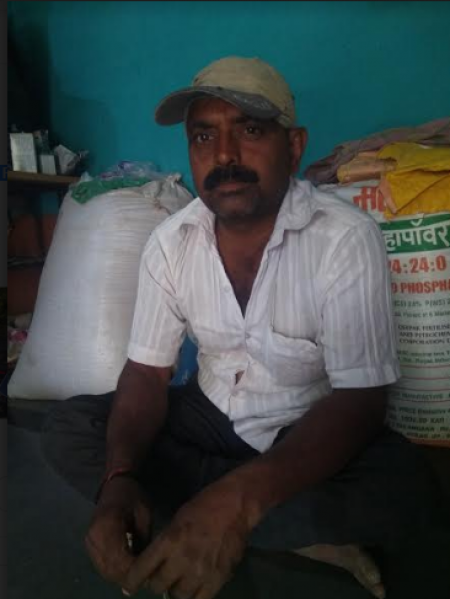
Akshay Tambe's father
The migration story of Marathwada has almost similar background of agriculture crisis in the region. “Around 12 boys from our village are now working in petrol pumps or as helpers or waiters in hotels of Pune. They don’t want to stay back in the village as they know that farming is a loss-making business,” said Vishal Dhage, Sarpanch of Chinchpur.
The Marathwada region has seen three droughts in the last seven years. Water table depletion has touched almost eight meters in the past five years. This has kicked off permanent migration in large numbers from Marathwada to cities, such as Pune in Maharashtra and Hyderabad in Telangana.
When Newsclick visited Chinchpur Dhage village, three boys in their 20s were leaving for Pune. All the three -- Vishal Suravase (25), Ranjit Suravase (26) and Haridas Dhage (23) -- work in petrol pumps in Pune and adjoining Pimpri Chinchwad and earn Rs 11,000 a month. “What do we do by staying back here? Farming doesn’t give us Rs 1 lakh per year. But any job in Pune does that,” said Vishal.
Mugav village of Nilanga tehsil in Nasik district has a similar story. Every household has one person working in Pune. “The youth don’t want to work in farms. They see how the returns over their labour are very low and many a times totally unpredictable. Ours is the last generation that worked hard here in farms. Now, given the choices, the youth will run away to cities,” said Pandurang Kawale.
Usually, there are two types of migration. One is when families go to cities and spent three to four months in periods of extreme droughts. This is temporary migration, which is just starting in Marathwada. As the winter period has extended in a large part of the country, the need of water was lower. But, as soon as summers hit, people will start leaving their homes.
However, this permanent migration from Marathwada is an altogether different story, tied to drought, agricultural crisis and depression.
There is another angle to this kind of migration. It is about young boys and girls shifting to Pune for competitive exams. They dream of breaking away from agriculture by becoming officers. It is roughly estimated that around one lakh youths from Marathwada are studying in Pune.
Kuldeep Ambekar, a young boy from Osmanabad, runs an organisation to help such students from drought-prone Marathwada. “Students helping hand”, the organisation that he runs along with his colleague Sandhya Sonavane helps students from Marathwada in different ways, including providing books, connecting them to affordable mess as well as hostels etc.
“This is one of the dimensions of migration. When we speak to the students, they open up with us. They say that farming is no more an option for them. So, they want jobs, mainly in government, through this,” said Kuldeep Ambekar.
“Girls too understand that less education is a trap to stay back in the same area. Their hopes are over from farming. So, all those who can afford to come here and study, don’t miss the chance,” said Sandhya.
“When we hear stories of farmer suicides while working in Pune, we always get disturbed. We literally see ourselves in their place. Sir, there is no future for us if we stay back. You may think that I am exaggerating, but you go and ask any boy. He will tell you same story,” said Haridas Dhage, sitting third on bike which is taking him to a nearby station for catching a train to Pune. His words at the age of 23 speaks the whole story of all that has gone wrong with agricutlure in Marathawada.
Get the latest reports & analysis with people's perspective on Protests, movements & deep analytical videos, discussions of the current affairs in your Telegram app. Subscribe to NewsClick's Telegram channel & get Real-Time updates on stories, as they get published on our website.









